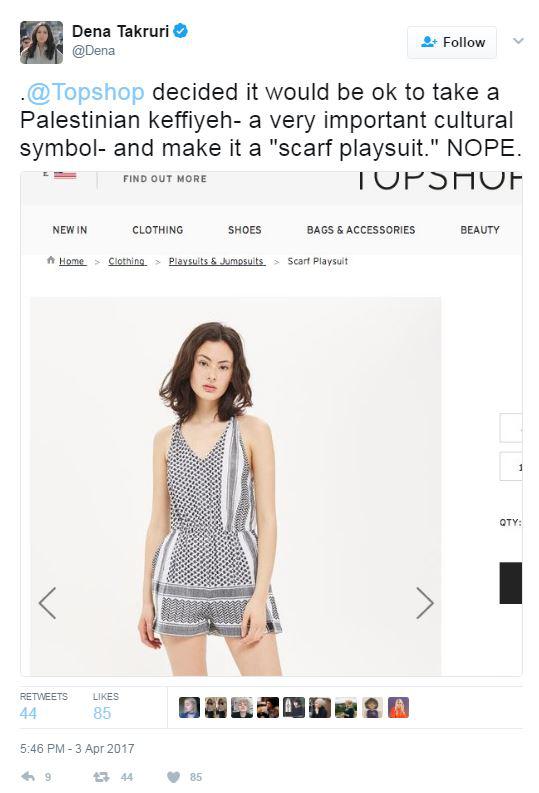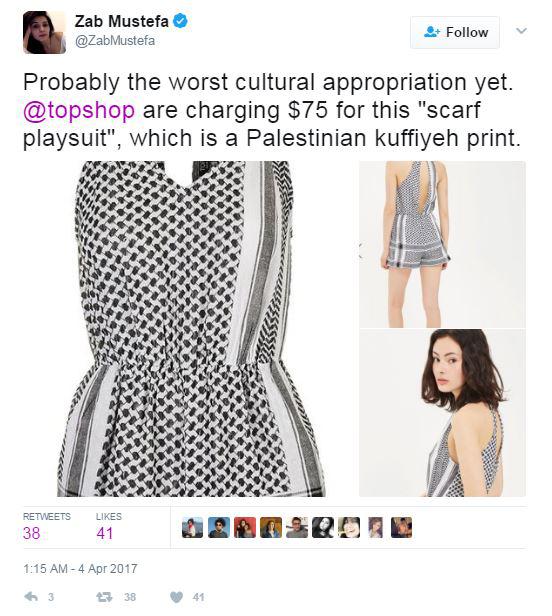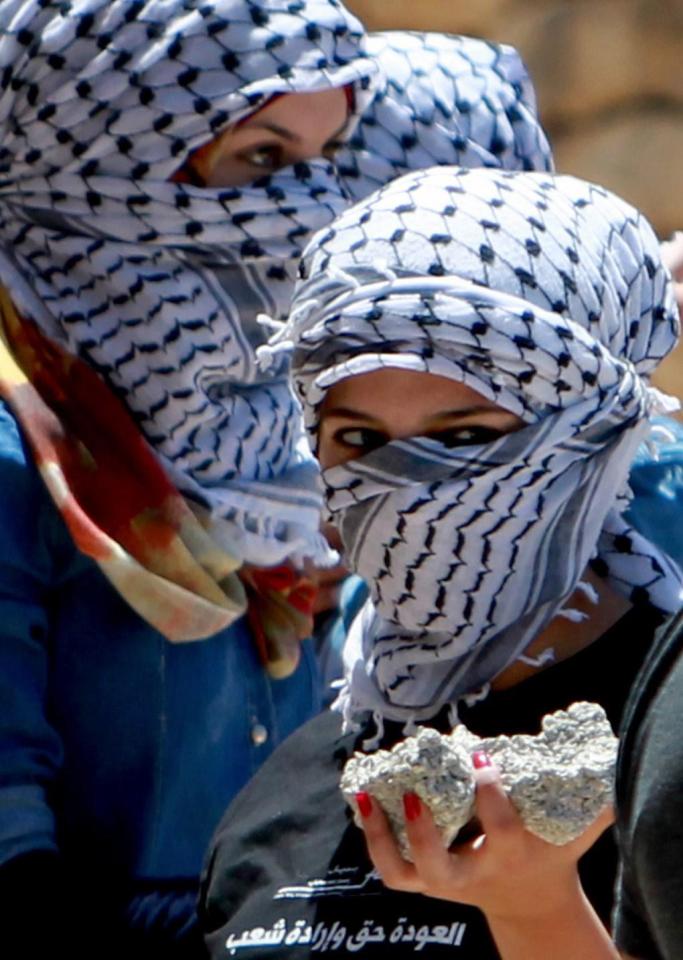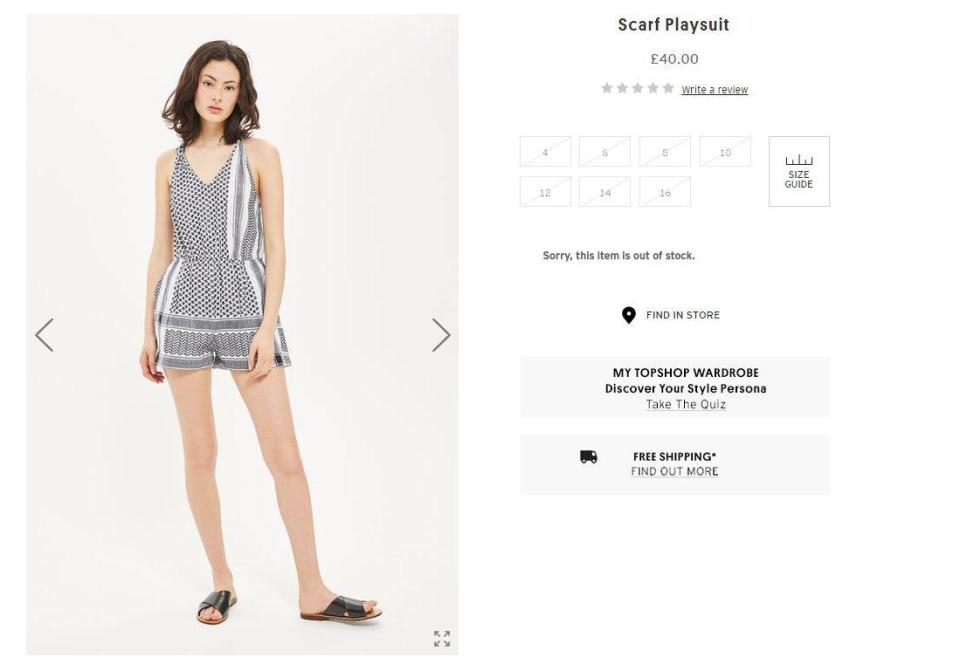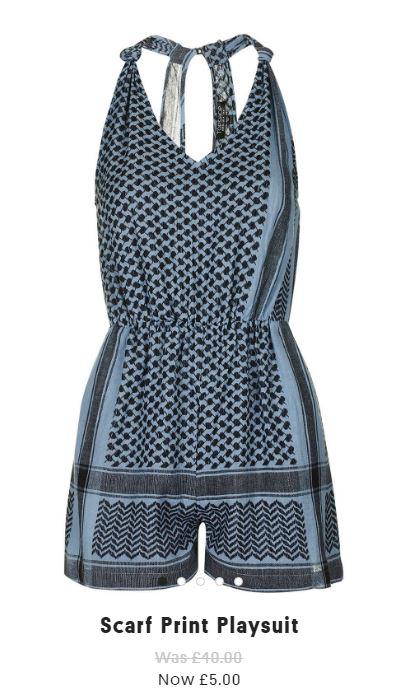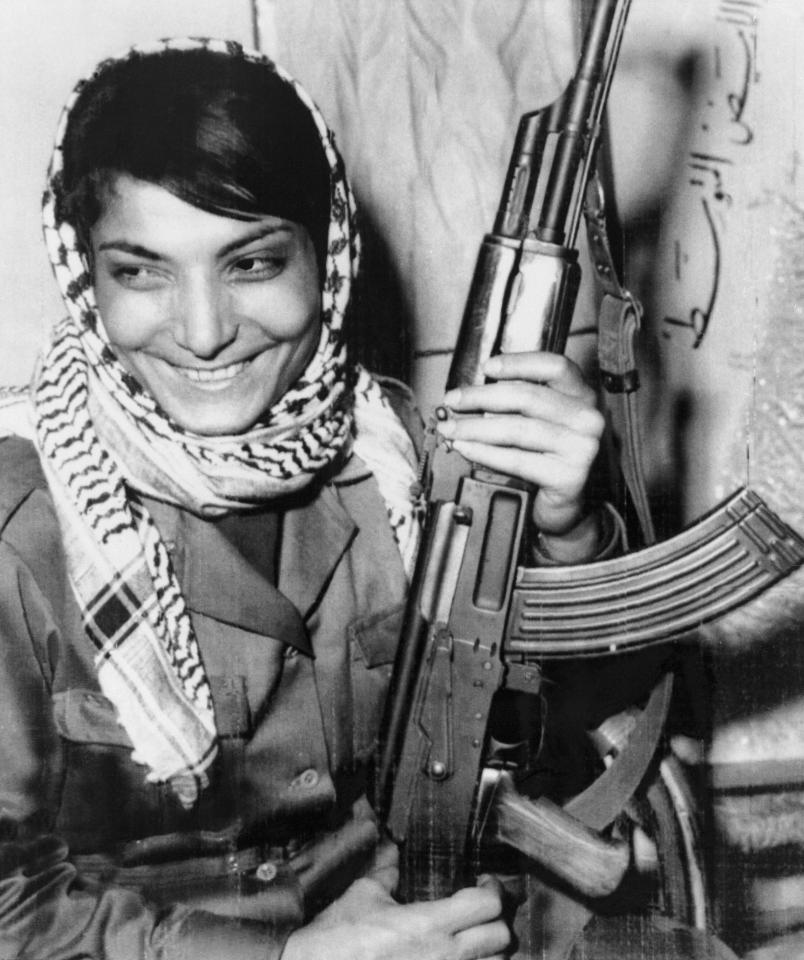Topshop under fire over ‘festival-ready scarf playsuit’ after shoppers liken print to Palestinian keffiyeh
Fashion chain accused of 'cultural appropriation' of symbolic chequered headscarf's 'history of hardship and bloodshed'

TOPSHOP has been slammed online for selling a "festival-ready" playsuit using the design of the symbolic keffiyeh worn by Palestinians.
The fashion chain was accused of "cultural appropriation" of the chequered headscarf's "history of hardship and bloodshed".
The keffiyeh has been a symbol of Palestinian nationalism since the 1930s and is worn today as a sign of solidarity.
Supporters were furious at Topshop for apparently borrowing the design for profit.
The chain's website boasted of the £40 cotton outfit: "Get festival-ready with this cute playsuit in monochrome scarf print with knot tie neck detail.
"Team with sliders for perfect summer-cool."
One Twitter user said: "I hope Topshop chokes for their culture appropriation, it's not a monochrome print, it's a keffiyeh w/ a history of hardship and bloodshed."
MOST READ IN NEWS
Another said: "Wtf this is making me sick that's not just a 'scarf' it's a keffiyeh at least use GOOGLE before u appropriate a culture uglies."
A.R. Widyaningrum tweeted: "It's not 'only' a piece of keffiyeh. Learn on how many tears and blood shed by this symbol of resistance. Not cool, Topshop."
Ramin Namvari said: "Palestinian #keffiyeh turned into @Topshop jumpsuit. Cultural appropriation to the extreme. Low, so very low."
Another user even called for a boycott saying: "Wtf did you think was going to happen when you used the keffiyeh and turned it into some shabby ass romper? #BoycottTopshop"
The monochrome playsuit has sold out online in the UK but a blue version is still available at the reduced price of £5.
The chain, owned by Sir Philip Green's Arcadia group, told The Sun Online: “Topshop is in the process of removing this style from sale.”
The keffiyeh is a traditional peasant garment worn across the Middle East, and was famously adopted by Lawrence of Arabia in the First World War.
In the 1930s it became a symbol of Palestinian nationalism during the Arab Revolt against British rule and Jewish immigration.
It later became associated with armed terror groups such as Yasser Arafat's PLO and female plane hijacker Laila Khaled of the Popular Front for the Liberation of Palestine.
It is still closely associated with Fatah and the PLO but it also worn as a sign of peaceful solidarity with the cause of a Palestinian state.
Yesterday Brooklyn Beckham was slammed for his “disrespectful” tattoo of a Native American.
In February two Bristol University students were accused of racism after wearing their hair in cornrows to dress as white characters from prison drama Orange is the New Black.
We pay for your stories! Do you have a story for The Sun Online news team? Email us at tips@the-sun.co.uk or call 0207 782 4368


